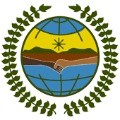 I attended a side event of the Permanent Forum on Indigenous Issues entitled, “Our Food Is Our Life.” The presenters elaborated on Article 31 of the UN Declaration on the Rights of Indigenous Peoples, which addresses the sovereignty of indigenous people over their food, traditions, and intellectual property.
I attended a side event of the Permanent Forum on Indigenous Issues entitled, “Our Food Is Our Life.” The presenters elaborated on Article 31 of the UN Declaration on the Rights of Indigenous Peoples, which addresses the sovereignty of indigenous people over their food, traditions, and intellectual property.
Andrea Carmen, executive director of the International Indian Treaty Council, said, “since the Mayan creation story states that human beings are made from corn, Mayans see the issue of genetically modified American corn as a spiritual one.” According to Carmen, “the USDA’s poisonous corn varieties, unfit for human consumption, which have been specifically cultivated for the production of fuel, will be next to impossible to contain now that they have been introduced into the environment.” Danika Littlechild of the Ermineskin Cree Nation of Canada, added, “in Canada, the landscape has been decimated by oil and gas exploration. When I was five years old, I was able to walk around my home and find traditional medicines and food, whereas now, because of herbicides and pesticides, the ecosystem has changed dramatically.” She reminded us that poverty is skyrocketing in her community, where people can neither grow crops, nor afford to buy fresh produce, causing the over-consumption of inexpensive junk food.
Tai Pelli, of the United Confederation of Taino People, said, “11% of the land on our planet belongs to indigenous peoples, many of whom are prevented from feeding themselves on their land.” One example she gave of such prevention was U.S. government experimentation with Agent Orange and other chemicals, which occurred on her indigenous land in Puerto Rico. “We have two generations of indigenous people who did not grow up cultivating their own food,” she said. “Our organization is making a collective effort to restore traditional agricultural methods in support of our youth, who are discovering their roots.”
If you are interested in how Jesus is working through Presbyterians to address the root cause of hunger all over the planet, and to reach out to our sisters and brothers, visit the Website of the Presbyterian Hunger Program, which endeavors to, “ensure that at least 50% of its grants are for activities which empower women and/or racial, ethnic, or indigenous people.” The Presbyterian Hunger Program has endorsed and helped fund the handbook, Food Sovereignty for All.